The 10 Key Factors in stage par lights That Affect Cost
- Illuminating Your Investment: The 10 Key Factors in Stage PAR Lights That Affect Cost
- The 10 Key Factors Affecting Stage PAR Light Costs
- 1. LED Chip Quality and Power
- 2. Optical System Design and Lenses
- 3. Build Quality and Materials
- 4. IP Rating and Environmental Protection
- 5. Control System and Connectivity
- 6. Heat Management and Cooling Systems
- 7. Advanced Features and Functionality
- 8. Research & Development and Innovation
- 9. Brand Reputation and After-Sales Support
- 10. Manufacturing Process and Quality Control
- Making an Informed Investment in Stage PAR Lights
- Conclusion
- Frequently Asked Questions
- Why do some LED PARs cost significantly more than others?
- What is an IP rating, and how does it affect the cost of stage par lights?
- Is it always better to buy more expensive stage par lights?
- How does LQE ensure value and cost-effectiveness for its stage lighting?
- What are common maintenance costs for stage par lights?
Illuminating Your Investment: The 10 Key Factors in Stage PAR Lights That Affect Cost
In the vibrant world of live events, theater, and broadcasting, stage lighting is more than just illumination—it's an art form that sets the mood, highlights performances, and transforms spaces. Among the myriad of fixtures available, stage PAR lights remain a versatile and indispensable tool for lighting designers. From compact uplighters to powerful wash fixtures, these workhorses are foundational to countless productions. However, anyone in the market for new equipment quickly realizes that the cost of stage PAR lights can vary dramatically. What drives these differences? At LQE, a professional OEM/ODM stage lighting equipment manufacturer with a rich history since 2008, we understand the intricate balance between performance, durability, and cost. We're committed to providing first-class modern stage lighting equipment while maintaining the best value in the industry. Our vision to become the world's leading manufacturer of LED stage lighting drives our transparency and expertise.
Understanding the factors that influence the price of stage PAR lights is crucial for making informed purchasing decisions, ensuring you get the best value for your investment without compromising on quality or performance. This comprehensive guide will illuminate the ten most significant elements that dictate the cost of these essential fixtures, helping you decode price tags and choose the right stage PAR lights for your specific needs.
The 10 Key Factors Affecting Stage PAR Light Costs
1. LED Chip Quality and Power
At the heart of every modern stage PAR light lies its LED engine. The quality and power of the LED chips are arguably the most significant cost drivers. High Quality brands like CREE, Osram, and Luminus produce chips with superior brightness (measured in lumens), better color consistency (CRI/TLCI), higher energy efficiency, and significantly longer lifespans. Lower-cost PARs often use generic or less efficient LEDs that may offer less intense output, have poorer color rendering, and degrade more quickly over time. Investing in stage PAR lights with high-quality LED chips means better performance, more reliable color reproduction, and reduced replacement costs in the long run.
2. Optical System Design and Lenses
Beyond the LED chip itself, how the light is shaped and projected is vital. The optical system, including lenses and reflectors, profoundly impacts beam quality, throw distance, and light uniformity. High-quality stage PAR lights feature precision-engineered optics made from durable materials, often specialized glass or advanced polymers, that minimize light loss and create clean, defined beams or smooth, even washes. Features like adjustable zoom, precise beam shaping, and flicker-free operation (crucial for broadcasting and film studios) require complex optical designs and high-grade materials, adding to the overall manufacturing cost. The pursuit of perfect light distribution and color mixing through superior optics is a key differentiator for high-end stage PAR lights.
3. Build Quality and Materials
The physical construction of a stage PAR light speaks volumes about its durability and longevity. High-end fixtures typically feature robust housings made from die-cast aluminum or heavy-gauge steel, designed to withstand the rigors of touring, frequent setup, and demanding environments. These materials also contribute to better heat dissipation, which is critical for LED longevity. In contrast, cheaper units might use thinner metals or plastic composites, which are lighter but less durable and may compromise thermal management. The quality of internal components, connectors, cables, and mounting hardware also plays a role. LQE's commitment to delivering long-lasting lighting solutions ensures our fixtures are built with superior materials and engineering, leading to dependable performance.
4. IP Rating and Environmental Protection
For outdoor events or venues susceptible to moisture and dust, the Ingress Protection (IP) rating is paramount. An IP-rated stage PAR light is designed with seals and protective enclosures to prevent the entry of solids and liquids. A higher IP rating (e.g., IP65, IP66) signifies greater protection, but this also means more complex manufacturing processes, specialized gaskets, sealed cables, and more robust housing materials, all of which drive up the cost. While indoor-only fixtures (typically IP20) are less expensive, the specific application of your stage PAR lights will dictate whether this added cost for environmental protection is a necessary investment.
5. Control System and Connectivity
Modern stage PAR lights offer sophisticated control options. The more advanced the control system, the higher the cost. This includes the number of DMX channels, support for RDM (Remote Device Management), on-board display interfaces, intuitive menus, and compatibility with wireless DMX protocols. High Quality fixtures often integrate advanced processors for smoother dimming curves, precise color calibration, and complex effects programming. While basic PARs might offer limited control channels, those designed for professional theaters and concert stages demand granular control over every aspect of light output, color, and movement, requiring more sophisticated and expensive electronics.
6. Heat Management and Cooling Systems
LEDs generate heat, and effective heat management is crucial for their performance and lifespan. Poor thermal design can lead to color shift, reduced brightness, and premature failure. High-quality stage PAR lights employ advanced cooling solutions, such as silent convection cooling (fan-less design), oversized heat sinks, or intelligent fan systems with variable speeds that adjust based on temperature, minimizing noise – a critical factor for studios and quiet theatrical productions. These sophisticated cooling systems, often requiring custom engineering and higher-grade materials, contribute significantly to the manufacturing cost but deliver tangible benefits in longevity and reliable performance.
7. Advanced Features and Functionality
Beyond basic color mixing, many stage PAR lights offer an array of advanced features that enhance creative possibilities but also increase cost. This includes multi-chip LEDs (RGBW, RGBA, RGBWA+UV) for a broader color spectrum, individual LED segment control for dynamic effects, built-in macros, high-speed strobing, pixel mapping capabilities, and advanced dimming features for smooth fades. Flicker-free operation, essential for video and broadcast applications, requires specialized power supplies and control circuitry. Each additional feature, especially those requiring complex software and hardware integration, adds to the research, development, and production expenses of the fixture.
8. Research & Development and Innovation
Innovation isn't free. Companies like LQE invest heavily in research and development to push the boundaries of stage lighting technology, enhance energy efficiency, improve light quality, and introduce new features. Our 80 national patents are a testament to this commitment. The cost of designing, prototyping, and rigorously testing new lighting solutions is embedded in the price of advanced stage PAR lights. When you purchase a cutting-edge fixture, you are also investing in the intellectual property and continuous innovation that brought it to market. This R&D allows for superior performance, unique features, and often, a better return on investment over the product's lifespan.
9. Brand Reputation and After-Sales Support
A well-established brand in the stage lighting industry often commands a higher price, and for good reason. Reputable manufacturers have a proven track record of reliability, performance, and customer satisfaction. This includes rigorous quality control, comprehensive warranties, readily available spare parts, and excellent technical support. Choosing a brand known for its commitment to quality, like LQE, provides peace of mind and minimizes potential downtime or unexpected repair costs. The assurance of expert support and readily available parts can be invaluable in a professional production environment.
10. Manufacturing Process and Quality Control
The sophistication of the manufacturing process and the stringency of quality control measures directly impact cost. High-volume manufacturers operating in state-of-the-art facilities (like LQE's 10,000 square meter production base, capable of 100,000 fixtures annually) can leverage economies of scale but still invest heavily in automated precision assembly, detailed calibration, and extensive testing protocols. Each stage PAR light leaving a reputable factory undergoes thorough checks to ensure it meets performance specifications and safety standards. This meticulous approach to manufacturing, from component sourcing to final assembly and testing, prevents defects and ensures consistency, contributing to a higher initial cost but guaranteeing a more reliable and longer-lasting product.
Making an Informed Investment in Stage PAR Lights
Navigating the diverse market of stage PAR lights requires a clear understanding of your specific needs and budget. While a higher price often correlates with superior components, advanced features, and greater longevity, the most expensive option isn't always the best fit for every application. Consider the environment, the required light output, control complexity, and the anticipated lifespan of the fixture. Investing in quality stage PAR lights from a reputable manufacturer like LQE ensures you gain not just a product, but a reliable solution backed by expertise, innovation, and dedicated support. Our extensive range of moving head lights and static lights, including top-tier PARs, is designed to meet the rigorous demands of theaters, music concert stages, studios, religious spaces, and more, all while delivering exceptional value.
Here's a quick summary of the factors and their impact:
| Factor | Impact on Cost | Key Consideration |
|---|---|---|
| LED Chip Quality & Power | Significant Increase | Brightness, Color Accuracy, Lifespan |
| Optical System & Lenses | High Increase | Beam Quality, Zoom, Light Uniformity |
| Build Quality & Materials | Moderate to High Increase | Durability, Thermal Management |
| IP Rating | Moderate Increase | Weather Resistance, Outdoor Use |
| Control System & Connectivity | Moderate Increase | DMX Channels, RDM, Wireless, Interface |
| Heat Management Systems | Moderate Increase | LED Longevity, Noise Levels |
| Advanced Features | Moderate to High Increase | Color Spectrum, Effects, Flicker-free |
| Research & Development | Implicit Increase | Innovation, Performance Enhancements |
| Brand Reputation & Support | Moderate Increase | Reliability, Warranty, Technical Support |
| Manufacturing & QC | Moderate Increase | Consistency, Reliability, Defect Prevention |
Conclusion
The cost of stage PAR lights is a multifaceted equation influenced by a range of technical specifications, material choices, and the innovation behind their design. From the lumens emitted by high-quality LED chips to the resilience of an IP65-rated casing, every component and design decision contributes to the final price tag. Understanding these ten key factors empowers you to make strategic investments that align with your project's demands and budget. At LQE, we pride ourselves on our ability to engineer middle- and high-end digital stage lighting solutions that embody cutting-edge technology, exceptional performance, and lasting value. We are dedicated to helping stage designers and producers realize their vision by providing high-quality, long-lasting lighting solutions that stand the test of time and performance. Explore our range of stage lighting equipment and discover how LQE can illuminate your next production with unparalleled quality and cost-effectiveness. Visit our website or contact us today to discuss your specific needs and find the perfect stage PAR lights for your vision.
Frequently Asked Questions
Why do some LED PARs cost significantly more than others?
The primary reasons for significant cost differences include the quality and brand of LED chips (affecting brightness, color accuracy, and lifespan), precision of the optical system, robustness of construction materials (e.g., die-cast aluminum vs. plastic), advanced features like zoom and wireless DMX, and the reputation of the manufacturer for R&D and after-sales support.
What is an IP rating, and how does it affect the cost of stage par lights?
An IP (Ingress Protection) rating indicates a fixture's resistance to solids (like dust) and liquids (like water). A higher IP rating (e.g., IP65 for outdoor use) requires more complex sealing, specialized materials, and rigorous testing during manufacturing, which adds to the overall cost. Indoor-only fixtures (typically IP20) are less expensive as they don't require this level of protection.
Is it always better to buy more expensive stage par lights?
Not necessarily. While more expensive stage PAR lights often offer superior performance, durability, and advanced features, the best choice depends on your specific application and budget. For simpler, less demanding uses, a mid-range fixture might suffice. However, for professional, critical applications like touring, broadcasting, or long-term installations, investing in higher-quality, more expensive units usually pays off in reliability, longevity, and consistent performance.
How does LQE ensure value and cost-effectiveness for its stage lighting?
LQE achieves value and cost-effectiveness through our integrated OEM/ODM approach, leveraging our 10,000 sqm production base for efficient manufacturing and economies of scale. We invest heavily in R&D (80 national patents) to innovate and optimize designs, using high-quality components while streamlining processes. This allows us to offer middle- and high-end digital stage lighting that delivers top-tier performance and durability at competitive industry prices.
What are common maintenance costs for stage par lights?
Maintenance costs for LED stage PAR lights are generally low compared to traditional fixtures. The main costs might include occasional cleaning of lenses and cooling vents, and replacement of parts like power cables or mounting brackets due to wear and tear. High-quality fixtures with excellent heat management and durable components (like those from LQE) will minimize the need for major repairs or LED module replacements, saving you money over the product's lifespan.
Top 10 moving wash lights Manufacturers and Supplier Brands
How to Choose the led stage lighting manufacturer and supplier in us?
The latest trends for mini moving head wash light | LQE Ultimate Insights
What are the different types of par lighting?
Distributor
What are the advantages of becoming an LQE distributor?
Access to high-performance, patented lighting products
Competitive factory pricing and excellent profit margin potential
Strong R&D capabilities with 80+ national patents
Reliable production capacity: 100,000 units annually
Dedicated account manager to support your growth
What is your typical lead time for distributor orders?
Our standard production lead time is 15–30 working days depending on order volume and customization requirements. For stocked models or repeat orders, we can offer shorter delivery times.
What types of companies can become LQE distributors?
We welcome partnerships with companies that have experience in the entertainment, AV, lighting, or stage equipment industries. Whether you are a local reseller, importer, system integrator, or project contractor, we are open to exploring win-win cooperation.
1000w
Does LQE Offer Customized Stage Moving Light Solution?
An experienced R&D team can provide customized digital stage lighting OEM/ODM solution service to meet clients’ unique demands from global markets, such as customized CRI parameter, Ingress protection rating, effect, etc.
What Kind of Certificates You Offer?
All kinds of certificates could be offered by LQE digital moving light factory, which depends on customer’s required, different pricing plan for different approval.
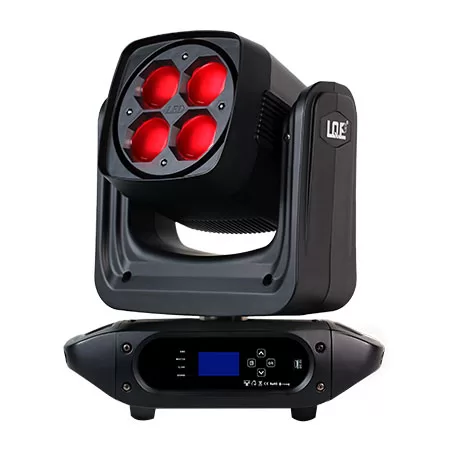
LED Moving Head Stage Wash Light LW200Z
The versatile moving head stage light provides a powerful lighting solution for theaters, concerts, and large outdoor performances. Suitable for theaters, TV stations, entertainment stages, and large outdoor performance scenes.
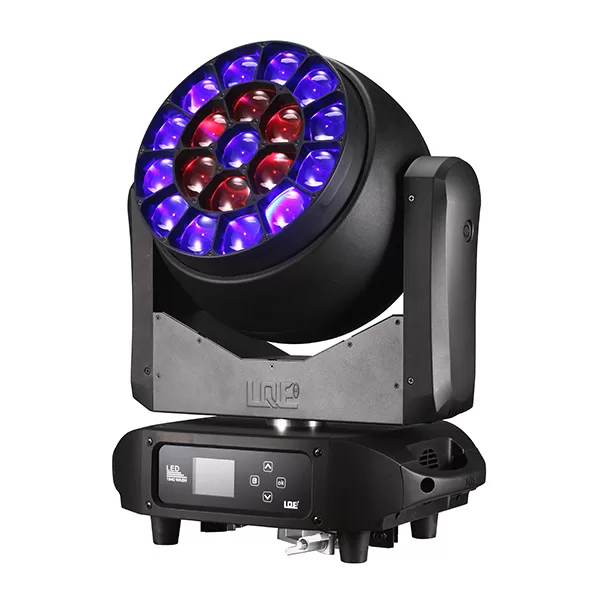
600w 19x40w RGBW Stage Moving Head Wash Light LW600 Zoom IP20
600W 19x40W LED RGBW Mulichips Moving Head Wash Lights with Zoom (5°–50°), Covering Large Range and Long Distance. IP20: Designed to deliver a 5°–50° ultra-large zoom range to achieve a greater wash effect, illuminating stages and events with stunning ring control lighting effects.
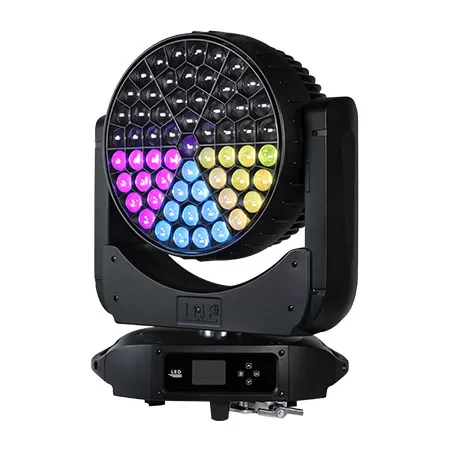
1000w 61x40w RGBW Stage Moving Head Wash Light LW1000
1000W 61x40W LED RGBW Mulichips Moving Head Wash Lights with Zoom (5°–50°), Covering Large Range and Long Distance. Designed to deliver a 5°–50° ultra-large zoom range to achieve a greater wash effect, illuminating stages and events with stunning lighting effects.
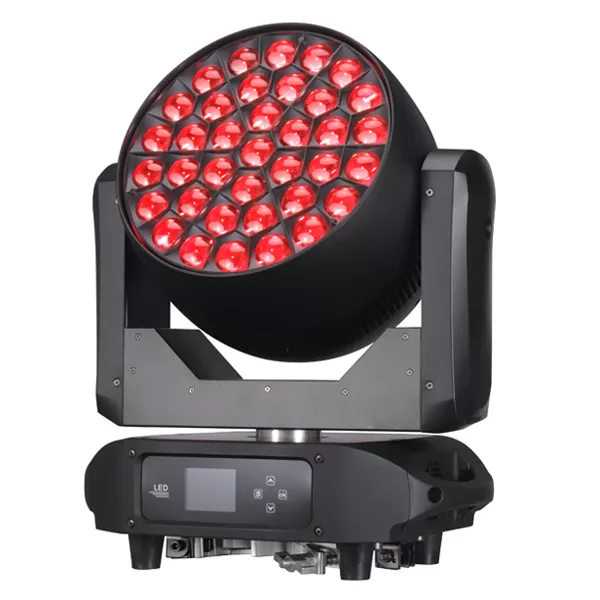
800w 37x40w RGBW Stage Moving Head Wash Light LW800
800W 37x40W LED RGBW Mulichips Moving Head Wash Lights with Zoom (5°-50°), Covering Large Range and Long Distance. Designed to deliver a 5°–50° ultra-large zoom range to achieve a greater wash effect, illuminating stages and events with stunning ring control lighting effects.

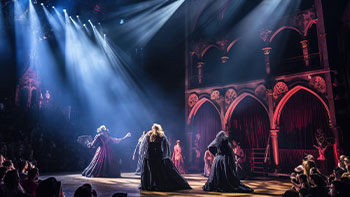
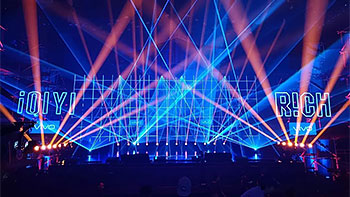
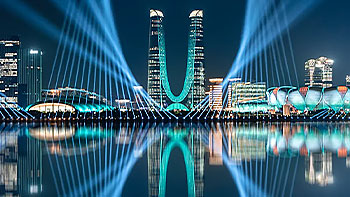
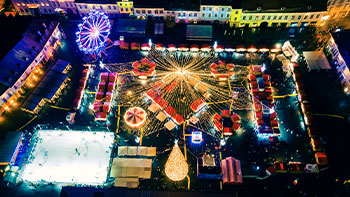
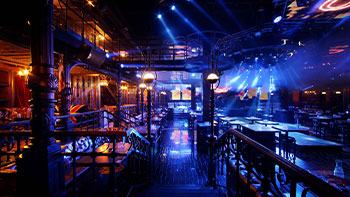
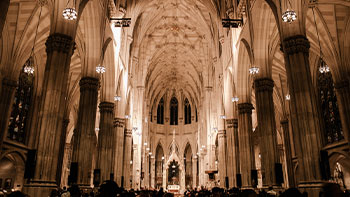






Linkedin
YouTube
Whatsapp: +8618924548390
TikTok